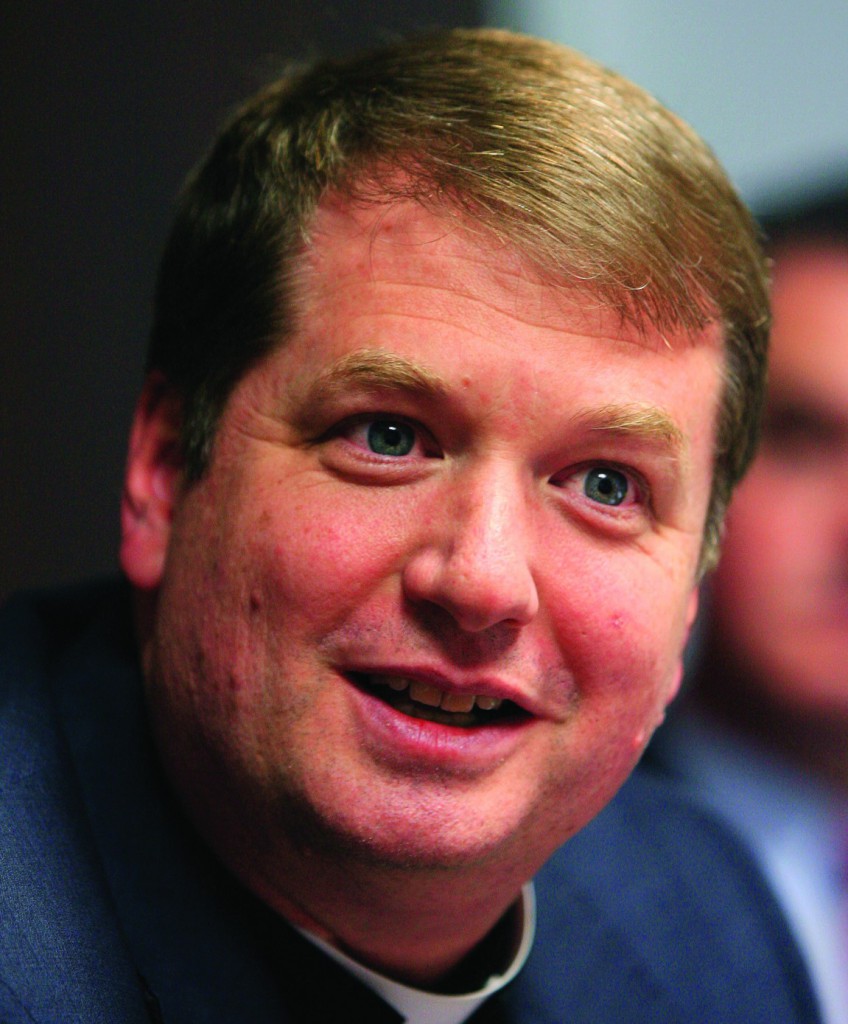
Western nations must resist the pressure to “scapegoat, abandon, even kill, the elderly as a cost-cutting measure,” an Australian bishop said in a major bioethics lecture.
Bishop Anthony Fisher of Parramatta, a member of the Pontifical Academy for Life, said health economists and utilitarian philosophers were placing the elderly at risk by treating them as a “swarm of voracious but unworthy consumers of a resource which doctors must guard from them.”
Delivering the 2012 Anscombe Memorial Lecture at St John’s College, Oxford University, he accused health economists who focused disproportionately on costs of “showing us how to get most efficiently to the wrong place.”
“In the process we may be led to compromise basic moral principles against killing, harming and abandoning, and favouring respect for the dignity and equality of all, promotion of health, reverence for the elderly and support for the disadvantaged,” Bishop Fisher said in his October 15 lecture.
“We should resist that pressure now by a strong insistence that age will not be a criterion of health care distribution,” he said.
Bishop Fisher concluded that priority of access to care and resources should be granted on the basis of needs, irrespective of age, with more important needs overriding less-important demands.
“The elderly are not a problem, a market, a budget: They are real individuals, our own people, our ancestors, in due course — ourselves,” he said.
Bishop Fisher said age rationing would not relieve indefinitely the problem of escalating demands and costs of health care systems.
“Which group will be next for exclusion once those savings have been exhausted?” he asked. “Those with handicaps or those whose social contributions are deemed low?”
His remarks came as concerns mounted about the care of the elderly in Britain’s state-funded National Health Service.
In October, British media reported numerous allegations by families that physicians have deliberately hastened the deaths of elderly or terminally ill relatives by withdrawing food and fluids while they were on the Liverpool Care Pathway, an end-of-life process aimed at making the final hours of dying patients as comfortable and free from distress as possible.
The intense media interest was triggered by a formal complaint of attempted murder made by Peter Tulloch to police.
During an unscheduled visit to Western General Hospital, Edinburgh, Scotland, Tulloch found his mother, Jean, 83, isolated and deprived of food and fluid. He demanded that her fluids were restored, but she died two weeks later.
Such mounting concerns about the Liverpool Care Pathway prompted Archbishop Peter Smith of Southwark, vice president of the Bishops’ Conference of England and Wales, to write Sept. 27 to Jeremy Hunt, secretary of state for health, to request a “thorough and urgent investigation” into whether “any corrective action is needed.”
But according to the London-based Catholic Herald, the government has refused to launch an inquiry.
“We continue to fully support its proper use as a way of managing a patient’s care with dignity and respect in their last days,” said a Department of Health statement on the paper’s website Oct. 18.
The London-based Daily Mail has reported that the British government has asked community doctors to keep registers of patients they think will die within a year.
The purpose, it reported, is to single out such people for care that would allow them to die in comfort rather than prolong their lives with treatment.
Bishop Fisher said the United Kingdom Department of Health reports that 45 percent of government hospital and community health expenditures go to those over 65, though they are only 16 percent of the population.
He said that as the number of people over age 65 rises, the strain on the government will increase proportionately and in absolute terms.
“Across the sea, Medicare for the over-65s will jump from the current 46 million beneficiaries to 79 million by 2030, with costs per person also doubling in the same period,” Bishop Fisher said.
“Something, people are saying, has to give.
“Of course we need principles of fairness here and virtues like medical temperance. But to wish we were dead before we are old or that the old were dead so they’d stop burdening us is no anthem for a good society,” he added.- CNS